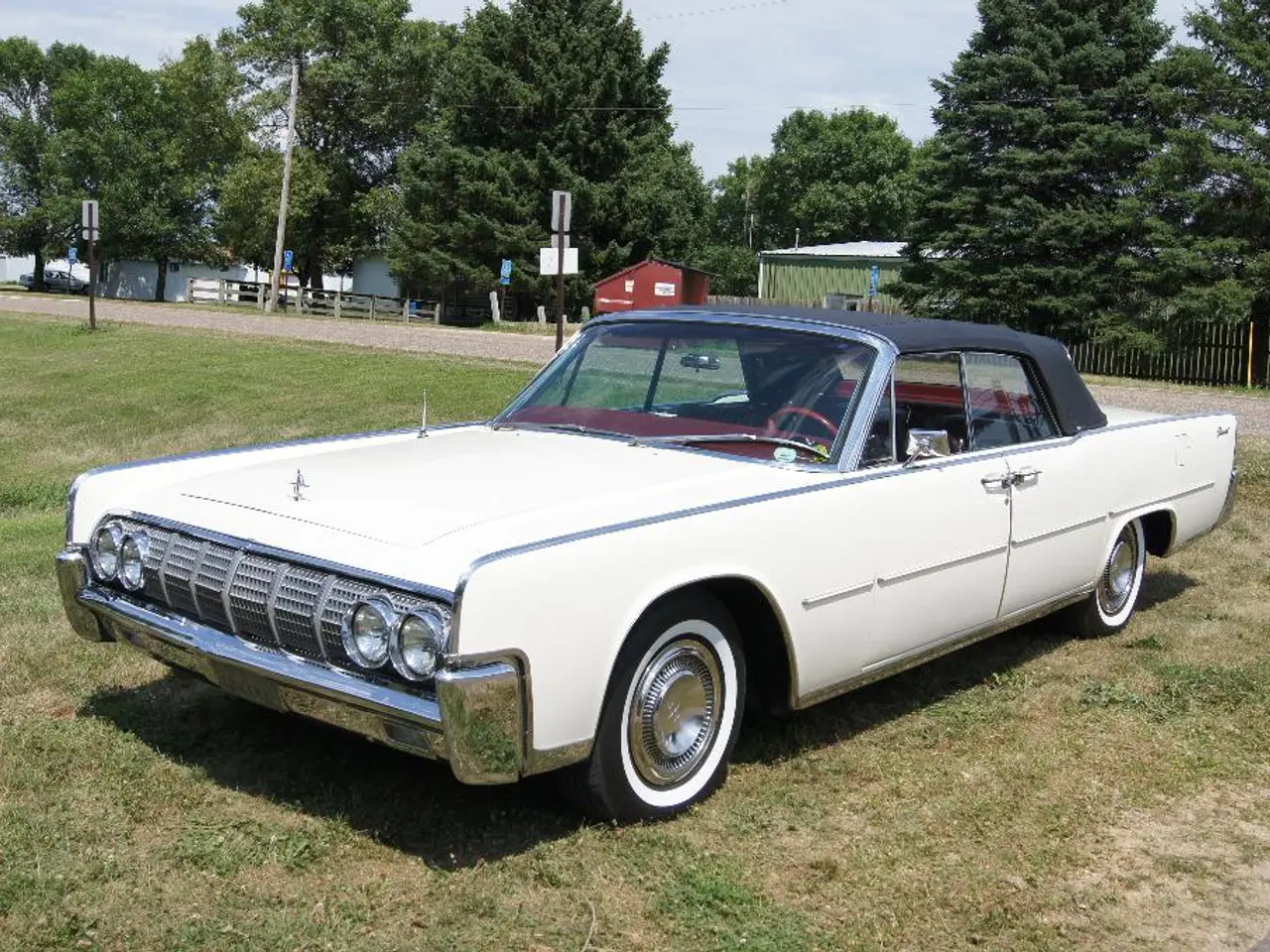Trump EPA initiative to overturn automobile exhaust regulations
The Trump administration's plan to revoke the Environmental Protection Agency's (EPA) 2009 greenhouse gas (GHG) endangerment finding could have far-reaching implications for environmental laws, the automotive sector, and climate progress.
The endangerment finding, which affirmed that GHGs pose a threat to public health and the environment, forms the legal basis for regulating vehicle emissions under the Clean Air Act. By dismantling this foundation, the administration's proposal risks the collapse of numerous regulations controlling emissions from vehicles, power plants, and other sources.
If implemented, this rollback could lead to higher vehicle emissions, reversing progress made in reducing tailpipe pollution over recent decades. With vehicles accounting for 29% of U.S. greenhouse gas emissions, the impact could be substantial. The proposed changes could also slow the transition to electric vehicles (EVs) and efficiency measures, as automakers may deprioritise electric and low-emission vehicle development.
The move is likely to face significant legal pushback. California and other states that have adopted stricter emissions standards are expected to resist the federal rollback aggressively, potentially leading to a patchwork of regulations and costly legal battles. Multiple environmental organizations have also announced plans to challenge the rollback in court, arguing that it contravenes scientific consensus and established law enforcing clean air protections.
The Trump EPA's draft plan challenges the scientific foundation of the 2009 finding, citing "unreasonable analysis" and recent events. Critics argue that this prioritises fossil fuel interests over science. The proposed repeal of vehicle emission standards is part of a larger deregulatory agenda that prioritises short-term financial gain over long-term environmental sustainability.
While proponents claim economic benefits by reducing compliance costs, critics warn that this short-term relief could be offset by environmental harm, legal costs, and delayed technology innovation. The repeal of vehicle emission standards may weaken climate progress and could be described as the "biggest deregulatory action in U.S. history".
The Biden administration, on the other hand, believes that increased car prices due to regulations ultimately save consumers money by improving fuel economy. The EPA's proposed repeal of vehicle emission standards is anticipated to be made public for discussion shortly.
The Supreme Court upheld the EPA's authority under the Clean Air Act to regulate greenhouse gas emissions in 2007. The Obama administration's 2009 endangerment finding concluded that vehicle-related GHG emissions endanger public health and welfare. The proposed repeal of vehicle emission standards may alleviate financial constraints for automakers, but it may also face legal challenges due to claims that it contradicts scientific consensus.
In summary, the Trump administration’s plan to revoke the vehicle GHG emissions regulations threatens to dismantle key environmental protections, slow the shift to electric vehicles, and provoke significant legal pushback from states, environmentalists, and parts of the auto industry advocating for regulatory stability and climate progress.
- The 2009 greenhouse gas endangerment finding by the Environmental Protection Agency (EPA) affirms that these harmful gases pose a threat to public health and the environment.
- This legal basis is crucial for regulating vehicle emissions under the Clean Air Act, and its revocation could lead to a collapse of various emission-controlling regulations across different sectors.
- The implications of this rollback could result in higher vehicle emissions, undoing efforts made to reduce tailpipe pollution over the years.
- The significant legal pushback expected against this change includes resistance from states like California and various environmental organizations that argue it contravenes scientific consensus and established law.
- The Trump EPA's proposal challenges the scientific foundation of the 2009 finding, prioritizing fossil fuel interests over science, according to critics.
- The repeal of vehicle emission standards, part of a larger deregulatory agenda, prioritizes short-term financial gain over long-term environmental sustainability and climate progress.
- The Biden administration believes that increased car prices due to regulations ultimately save consumers money by improving fuel economy.
- The Supreme Court has upheld the EPA's authority to regulate greenhouse gas emissions under the Clean Air Act, and the proposed repeal may face legal challenges due to claims that it contradicts established law and scientific consensus.




